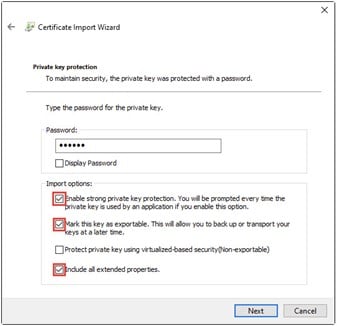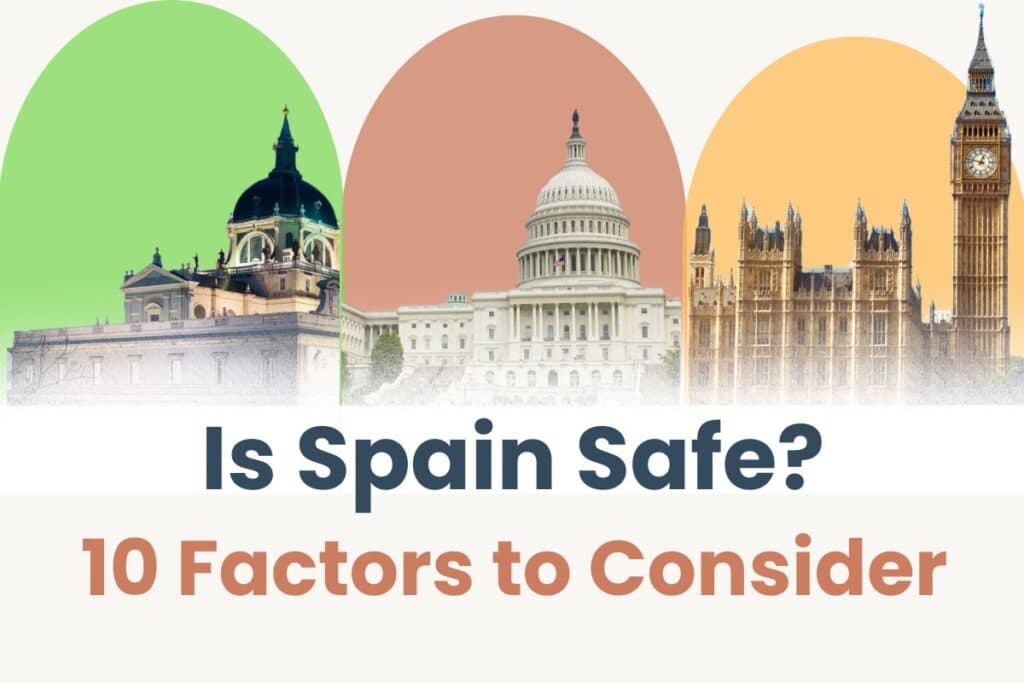Having a digital certificate in Spain is essential. I’ve just gone through the process because I understand how much it will help my Expat life in Spain. A digital certificate is a form of electronic ID that proves your identity when accessing online services. For US and British citizens, there is no direct equivalent to the Spanish digital certificate. The closest entity is the IRS Public Key (US) or the Government Gateway ID (UK).
What is a Digital Certificate (Certificado Digital)?
A digital certificate in Spain is a secure, digital form of identification that allows you to verify your identity online. It’s like a passport or ID card for the digital world. It proves who you are when you’re dealing with various Spanish government services or conducting secure transactions over the Internet.
Its main purpose is to allow you to do things online that would otherwise require you to visit a government office in person. This includes everything from filing your taxes to applying for social security benefits or renewing your residency in Spain.
It’s an essential tool for anyone living in Spain, especially for Expats and self-employed (Autónomo). Here’s a practical look at a digital certificate and how it benefits you.
READ ALSO: How to Open a Spanish Bank Account>> Easy 2024 Expat Guide
Key Benefits of a Spanish Digital Certificate
- Convenience
No more waiting in long queues at government offices. With a digital certificate, you can handle many bureaucratic tasks from the comfort of your home. - Time-Saving
Skip the paperwork and in-person visits. Everything can be done online quickly and efficiently. - Security
Your personal information is protected, ensuring your data remains safe when accessing online services. - Legal Validity
A digital certificate is legally recognized in Spain, meaning you can sign documents electronically with the same legal standing as a handwritten signature. - It Is Free
There is no charge for your digital certificate Spain.
Common Uses of Your Spain Digital Certificate
- Government Services
You can file your taxes, access Social Security, apply for benefits, renew your residency in Spain, and more. - Healthcare
Access your medical records, make appointments, and communicate with healthcare providers in trh Spanish Healthcare system securely. - Banking and Financial Services
Conduct secure online banking, sign financial agreements, and perform other transactions. - Legal Documents
Sign contracts, authorize transactions, and handle other legal matters without the need for physical signatures.
Our digital certificate makes Expat life in Spain so much easier. Our assistant can file, query, and appeal on our behalf—that alone is worth it. Anything that keeps me out of queues and red-tape meetings is on my list of things worth doing!
Alastair Johnson – owner of Moving to Spain
How to Get a Digital Certificate in Spain
Things You Need Before You Start Your Digital Certificate Application
Valid Passport or Residency Card (TIE)
- Passport: Ensure that your passport is valid and not expired. It should be the same passport used when you registered as a resident in Spain.
- Residency Card (TIE): If you have a residency card (Tarjeta de Identificación de Extranjero), make sure it is current and contains accurate information. Your TIE is crucial as it uniquely identifies you as a foreign resident in Spain.
- Foreigner’s Identification Number (NIE): A valid NIE number can also be used. This is useful if you don’t have a TIE and need to get your digital certificate as soon as possible.
Proof of Address in Spain
- Empadronamiento Certificate (El Padrón)
This is the official certificate that proves you are registered at a Spanish address. You can obtain this from your local city or town hall (Ayuntamiento). For non-Spanish residents, it is usually valid for two years. However, when used as proof of address, it needs to have been issued or re-issued within the last three months—just one quirk of living in Spain! - Utility Bills
In some cases, recent utility bills (electricity, water, internet) may also be accepted as proof of address. Ensure these bills are in your name and match the address you are registering with.
Additional Document Preparation Tips
- Translations
If your documents are in English, you might need certified Spanish translations. Check with the issuing authority to see if these are required. - Copies
Make multiple physical copies of each document, and a scanned digital copy with a back-up. This will be helpful for both the application process and your records. - Check Requirements
Different issuing authorities might have differing requirements. Visit their official websites or contact them directly to confirm the specific documents needed.
Request an Appointment
Schedule an appointment at a local issuing authority. This is usually at your city or town hall but can be at one of the FNMT (Fábrica Nacional de Moneda y Timbre) offices. The FNMT is the official government office responsible for digital certificates in Spain.
Note: Before requesting an appointment, you must install the software indicated on the FNMT website. After this, you request a code from the FNMT website, which will be required when you verify your identity and later when you download your certificate. The code is linked to the requester’s NIE number and last name, so it is important to ensure that both the NIE and the first and last names are entered correctly.
At the Digitial Certificate Appointment
- Your identity will be verified in person.
- Submit application forms and documents.
- Take your Spanish mobile. Part of the verification process may involve the authority sending you SMSs.
Tip: At my appointment, the guy behind the counter only spoke Spanish. He was very patient, but if you don’t speak any Spanish, it may be worth taking along a bilingual friend (unless your charade skills are awesome).
Install the Digital Certificate
- Approximately one hour after verifying your identity at an Identity Verification Office, you will receive an email allowing you to download and install your certificate and make a backup copy. For security reasons, this download will only be possible on the computer from which you requested the code.
- You will receive a password by SMS to your mobile and an email with download instructions.
- You can backup a copy of your digital certificate. This allows you to export the certificate to your mobile devices and install it on them as needed.
Activate the Certificate
- Follow the instructions to install the certificate on your computer (the initial installation cannot be on a mobile or tablet).
- Ensure it is correctly installed and functioning.
Need Tax Advice?
Need clarity on your tax obligations and a solid financial strategy ? Schedule a consultation with our recommended tax advisor, Louis, to gain complete clarity and peace of mind.
Potential Pitfalls and Issues to Avoid
While obtaining and using a digital certificate in Spain can greatly simplify your life, there are some pitfalls and issues to be aware of. Being prepared and informed can help you avoid these common problems:
Documentation Errors
- Incorrect Information: Ensure all your personal details are accurate on your documents. Mistakes in your name, address, or NIE can lead to delays or rejections.
- Expired Documents: Make sure your passport, TIE, and other relevant documents are valid and up-to-date. Expired documents can invalidate your application.
Appointment Delays
- Scheduling Issues
Appointments for verifying your identity at issuing authorities can be scarce. Book your appointment well in advance to avoid long waiting times. - Missed Appointments
Missing your scheduled appointment can set you back significantly. Always confirm your appointment details and set reminders.
Technical Issues
- Installation Problems
Installing a digital certificate on your computer or mobile device can be technically challenging. Follow the instructions carefully and seek help if needed. - Marking your Private Key as Exportable: During the installation process, you have the option to protect your private key and make it exportable. If you do not make it exportable, you will not be able to allow your digital certificate to be used by authorized third parties (e.g., your accountant who manages your personal income tax return). Warning: I made this error, and it took some time to redo the process, so do follow these directions closely.
- See the relevant Digital Certificate Import Wizard screenshot to see what boxes to tick:

- Compatibility: Ensure your computer or mobile device meets the necessary technical requirements for installing and using the digital certificate.
Security Risks
- Protect Your Private Key
Your digital certificate includes a private key that should be kept secure. Only share it with trusted partners, such as your Spanish accountant and tax specialist, and use strong passwords. - Phishing and Scams
Be cautious of emails or websites asking for your digital certificate information. Always verify the authenticity of requests. If in any doubt, don’t click!
Expiry and Renewal
- Expiration Dates
Digital certificates have expiration dates. To avoid disruptions, keep track of when your certificate is due to expire and renew it in a timely manner. - Renewal Process
The renewal process can be as involved as the initial application. To ensure continuous access, start the renewal process well before your certificate expires.
Data Management
- Backup Your Certificate
Keep a backup of your digital certificate in a secure location. This ensures you can restore it if your PC or device has issues. We keep our backup in Google Drive in the cloud. - Update Personal Information
If your personal information changes (eg, new address), update your digital certificate to reflect these changes to avoid future issues.
Digital Certificate Spain – Make Life Easier
Your digital certificate is a key tool for efficiently managing your affairs in Spain. It is your online identity. Spain is arguably more advanced along its digital transformation journey than many other countries, so it’s essential you have one.
One final tip—which is true for any interaction with Spanish authorities—is to take all (possibly!) relevant official documents to your appointment. This minimizes the risk of not having that one seemingly irrelevant document that no one knew you needed!
Spanish Government Resources
- National Body of Electronic Certificates (FNMT): This is the official website of the FNMT-RCM, the Spanish government entity responsible for issuing digital certificates. Look for sections on “Individual Certificates” and “How to Obtain a Certificate” in English. (https://www.sede.fnmt.gob.es/en/certificados/persona-fisica)
- Spanish Tax Agency: The Tax Agency website offers an FAQ section explaining digital certificates and their use for tax purposes. Search for “Digital Certificate FAQ” in English. (https://sede.agenciatributaria.gob.es/Sede/en_gb/videos/obtener-certificado-electronico.html)









Hi … I am a UK resident and have a property I let out in Spain using Check in to register my renters. Check in have said I need to get a FNMT Digital Certificate . Having tried to get the relevant certificate I find I cannot proceed because they request a TIE Card Number or a DNIe Number. I only have a NIE Number which gives me Código de solicitud: 489XXXXXX – On trying to get certificate the form wants a TIE or DNIe number. How does a foreign national living in UK get this certificate? I have also tried to go direct to register with https://sede.agenciatributaria.gob.es/Sede/ayuda/firma-digital-sistema-clave-pin-tecnica/clave.html so I do not need CheckIn – but the same – I do not have a TIE or DNIe
Is there anyway you can assist with this or guide me in order to get my certificate..
Hi Jimmy – Yes, we get quite a few queries about Digital Certificates, so you are not alone!
First off, a DNIe is not an electronic NIE. The NIE is for foreign nationals and is a number — not a card — for non-Spanish citizens who live, work, or conduct financial transactions in Spain.
The DNIe (Documento Nacional de Identidad electrónico) is issued only to Spanish citizens. It is a physical smart card with a biometric chip that allows for secure digital transactions and authentication online.
To get a Digital Certificate as a UK citizen with an NIE living in the UK, I suggest the following:
1. Make sure you have the latest version of one of Mozilla Firefox, Google Chrome, Microsoft EDGE, Opera or Safari
2. Go to the FNMT site: https://www.sede.fnmt.gob.es/descargas/descarga-software/instalacion-software-generacion-de-claves and download and install the appropriate version of the FNMT software. This allows you to download your Digital Certificate to your computer.
3. Go to the FNMT site and request your Digital Certificate as a Persona Física: https://www.sede.fnmt.gob.es/certificados/persona-fisica/obtener-certificado-software/solicitar-certificado. This generates your Código de Solicitud (which I think you have already done)
4. To prove your identity without being in Spain, you have to go to a Spanish consulate:
1. Make an appointment at your nearest Spanish Consulate in London, Manchester, or Edinburgh. In my experience, this has to be the nearest one to where you live, you cannot choose. If it’s Manchester, so much the better as they are super-friendly and flexible.
2. You will need:
1. Valid Passport
2. NIE Certificate
3. Código de Solicitud
4. Other ID required (ask the Consulate when making the appointment. You should not need a TIE)
5. An email confirmation of your ID as verified will be sent to you along with a link to download your Digital Certificate
6. Go to the FNMT page and use your Código de Solicitud to download and install your certificate. VERY IMPORTANT: During installation, mark your Private Key as Exportable. If you do not make it exportable, you cannot send your Digital Certificate to authorized third parties.
I hope this helps. Best of luck, and if you have time, please let me know how you got on
Hi Alistar, when you get your appointment from the Consulate there is a link to a PDF form to fill in. (Solicitud de certificado de identidad de persona fisica en oficinas consulares de espana).
https://www.exteriores.gob.es/Documents/DocumentosSC/Certificados/Solicitud certificado usuario persona física.pdf
This form requires a Spanish professional to counter sign to say it is your signature. The Consulate did not offer to do this, so no digital certificate was issued. What would you suggest if you do not know the right person to countersign?
I have asked them who else can countersign but no answer received.
Hi Jerry, thank you for your enquiry.
I assume you are applying from outside Spain. According to the form, there are two ways to verify your identity:
I am surprised the verification was not done at your appointment at the consulate. However, option 2 is open to you. In this case, you will probably need to have the notary’s signature apostilled as well. Our article The Hague Apostille Process In Spain, explains this in more detail.
Hope this helps
All the best
Mike